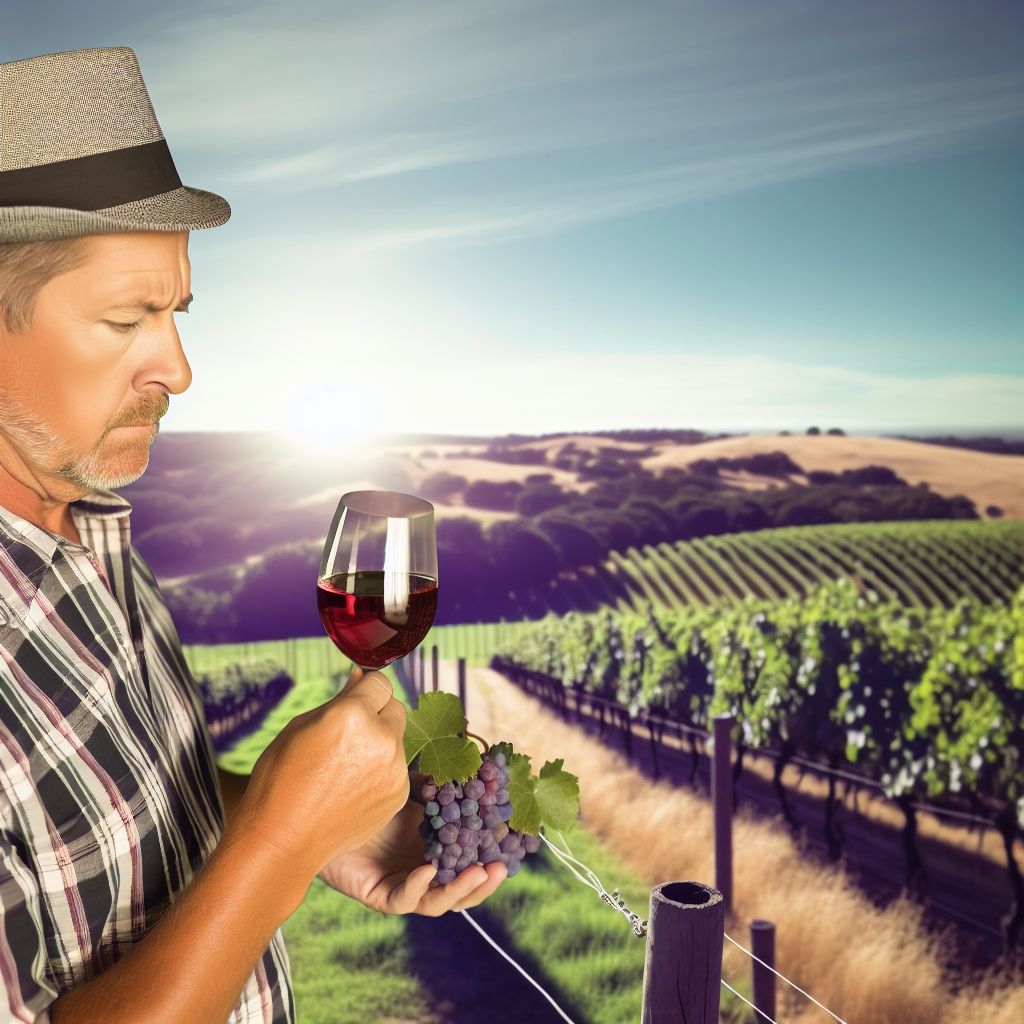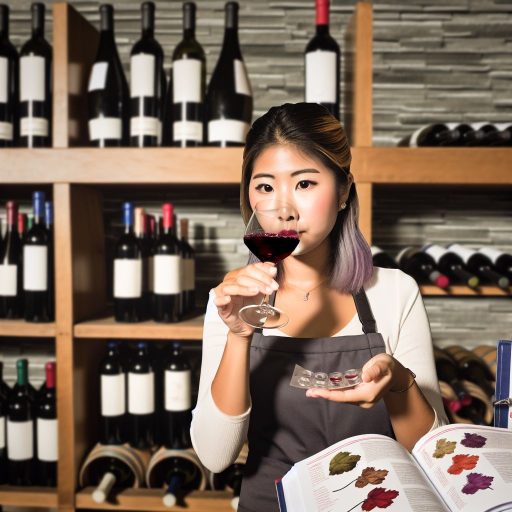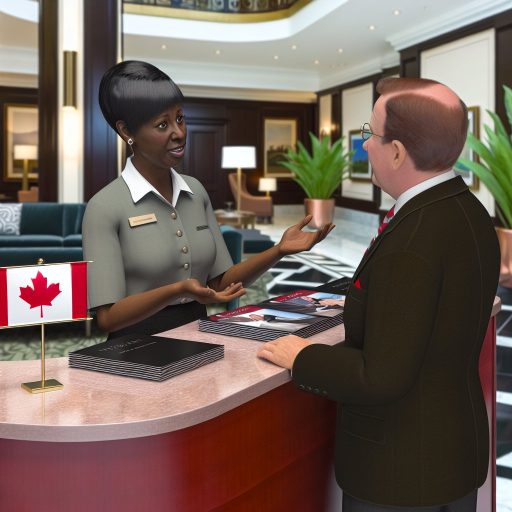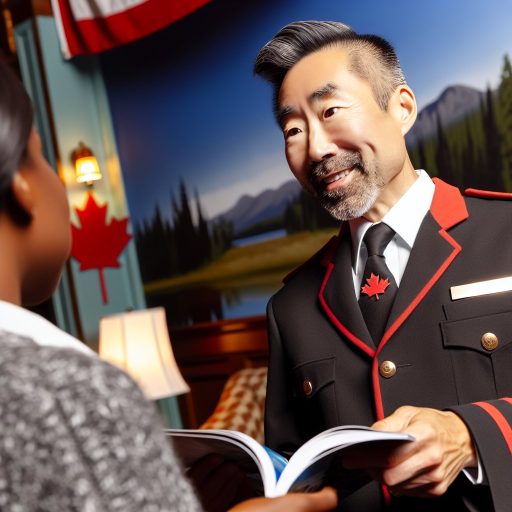Introduction to Wine Tasting
Definition of Wine Tasting
Wine tasting is the sensory examination of wine.
This process involves evaluating a wine’s appearance, aroma, taste, and finish.
It allows enthusiasts and professionals to appreciate the complexities of different wines.
Additionally, it helps in educating individuals about various wine styles and regions.
Importance of Wine Tasting
Wine tasting plays a crucial role in the wine industry.
It aids consumers in making informed purchasing decisions.
Moreover, it enhances the enjoyment of wine by developing personal preferences.
Wine tastings also promote social interaction and cultural experiences.
The Role of a Wine Taster
A wine taster examines wines critically and offers professional assessments.
They often work for wineries, retail establishments, or media outlets.
By providing detailed tasting notes, they guide consumers on their wine journeys.
Additionally, they contribute to wine competitions by judging entries.
Developing Wine Tasting Skills
Becoming an accomplished wine taster requires practice and education.
Understanding wine theory and terminology is essential for effective tasting.
Regularly tasting different wines expands one’s palate and expertise.
Furthermore, attending workshops and tastings can enhance knowledge and skills.
Historical Evolution of Wine Tasting as a Profession
The Origins of Wine Tasting
Wine tasting dates back to ancient civilizations.
In Mesopotamia, people began to cultivate grapes over 7,000 years ago.
Early wine enthusiasts focused on flavor and quality assessment.
Egyptians documented their wine preferences in hieroglyphs.
This marked the beginning of wine as a cultural artifact.
Wine Tasting in Medieval Europe
The Middle Ages saw the rise of vineyards in Europe.
Monks played a crucial role in developing wine tasting techniques.
They cultivated and evaluated grapes to enhance their production.
As a result, wine became an integral part of religious ceremonies.
Unlock Your Career Potential
Visualize a clear path to success with our tailored Career Consulting service. Personalized insights in just 1-3 days.
Get StartedWine tasters started to gain recognition for their expertise.
The Professionalization of Wine Tasting
The 19th century marked significant changes in the wine industry.
As vineyards expanded, so did the demand for quality assessment.
Wine competitions emerged, further highlighting the importance of tasting.
Organizations like the British Institute of Masters of Wine began to form.
These developments laid the groundwork for wine tasting as a career.
The Modern Era of Wine Tasting
Today, wine tasting is a respected profession worldwide.
Professionals undergo rigorous training and certification programs.
They analyze wines based on various criteria, including aroma and flavor.
Wine criticism has also evolved, with influential publications emerging.
Furthermore, sommeliers now play key roles in fine dining establishments.
The Future of Wine Tasting
The industry is witnessing innovative trends in wine tasting techniques.
Technology is reshaping how people experience and evaluate wine.
Virtual tastings and sensory experiences are becoming popular.
As climate change affects production, tasters adapt to new challenges.
The journey of wine tasting continues to grow and evolve.
Educational Pathways: Degrees and Certifications in Wine Tasting
Overview of Educational Requirements
A career in wine tasting requires specific educational pathways.
Many aspiring sommeliers pursue formal degrees.
Others may choose certification programs tailored for wine professionals.
Each option provides valuable knowledge and experience.
Degrees in Wine Studies
Several universities now offer degree programs in wine studies.
These programs cover viticulture, enology, and business principles.
Students gain a thorough understanding of the wine industry.
Some programs include hands-on tasting experiences.
Graduates are well-prepared for roles within the wine sector.
Notable Degree Programs
- The University of California, Davis offers a renowned program.
- California State University, Fresno also provides extensive education.
- Located in Australia, the Charles Sturt University has a strong reputation.
Certification Programs
Certification can enhance credibility in wine tasting careers.
Many organizations offer specialized programs.
The Court of Master Sommeliers offers a globally recognized certification.
This certification has multiple levels to accommodate different expertise levels.
Other options include programs from the Wine and Spirit Education Trust.
Benefits of Certification
- Certification enhances professional qualifications.
- It provides networking opportunities within the industry.
- Certified individuals often have access to exclusive events.
Workshops and Masterclasses
In addition to formal education, workshops are highly beneficial.
Many wineries and organizations offer tasting workshops.
These programs emphasize sensory evaluation techniques.
Participants learn to identify different wine varietals.
Masterclasses by renowned sommeliers can enhance tasting skills.
Finding Workshops
- Local wineries often host educational events.
- National and international wine fairs commonly include workshops.
- Online platforms also offer virtual tasting classes.
Continuous Learning and Development
The wine industry is ever-evolving; ongoing education is crucial.
Sommeliers should stay updated on wine trends and production techniques.
Attending seminars and industry conferences is a great way to learn.
Building a personal library of wine literature is also beneficial.
Moreover, connecting with other professionals fosters knowledge sharing.
Find Out More: Tips for Staying Organized as a Front Desk Agent
Essential Skills Needed for a Career in Wine Tasting
Sensory Evaluation
Wine tasting relies heavily on sensory evaluation techniques.
One must develop a keen sense of smell and taste.
Being able to identify various aromas and flavors is crucial.
Additionally, one should learn to distinguish subtle differences in wines.
Knowledge of Wine Regions and Varietals
Understanding different wine regions enhances overall expertise.
It includes knowing terroir and its impact on wine characteristics.
Familiarity with various grape varietals is equally important.
This knowledge helps in evaluating and appreciating wines.
Communication Skills
Effective communication is vital in wine tasting.
One must articulate observations clearly and confidently.
Sharing insights with peers or clients enriches the tasting experience.
Moreover, teaching others about wine cultivates a deeper appreciation.
Attention to Detail
Attention to detail significantly influences wine evaluation.
Noticing minute differences affects tasting accuracy.
Keeping detailed notes aids in tracking impressions and preferences.
Consequently, this skill enhances overall evaluation abilities.
Passion for Learning
A passion for continuous learning is essential in the wine industry.
Wine tasting involves staying updated on trends and developments.
Attending workshops and tastings fosters personal growth and knowledge.
Additionally, engaging with fellow enthusiasts fuels enthusiasm.
Find Out More: How Sommeliers Influence Wine Trends in Canada
Understanding Wine Regions: A Guide to Terroir and Varietals
Defining Terroir
Terroir describes the unique characteristics of a wine’s environment.
This concept encompasses soil, climate, and geography.
Each component influences the flavor of the grapes.
The Importance of Soil
Soil plays a vital role in grape cultivation.
Different soil types affect drainage and nutrient availability.
For instance, limestone can impart minerality to wines.
Common Soil Types
- Clay: Retains moisture but drains poorly.
- Sandy: Drains well but retains little moisture.
- Limestone: Promotes acidity and complexity.
- Granite: Often yields intense fruit flavors.
Climate and Its Influence
Climate shapes the growing season for grapes.
Factors like temperature and rainfall affect ripening.
Cool climates produce crisp, acidic wines.
Warm climates often yield rich, full-bodied varieties.
Climate Zones
- Cool Climate: Regions like Burgundy.
- Moderate Climate: Areas such as Bordeaux.
- Warm Climate: Locations like Napa Valley.
Exploring Grape Varietals
Grape varietals are specific types of grapes used in wine production.
Each varietal brings distinct flavors and aromas.
Understanding these varietals enhances wine tasting experiences.
Popular Varietals
- Chardonnay: Known for its buttery texture.
- Pinot Noir: Offers berry flavors and floral notes.
- Cabernet Sauvignon: Renowned for its full body and tannins.
- Sauvignon Blanc: Crisp and refreshing with herbal hints.
The Connection Between Terroir and Varietals
Terroir directly affects the characteristics of grape varietals.
Therefore, understanding terroir enhances appreciation of wine.
Wines from specific regions reflect their unique environments.
Case Studies of Terroir
- Bordeaux: Known for Merlot and Cabernet Sauvignon.
- Pinot Noir from Oregon’s Willamette Valley.
- Malbec in Mendoza, Argentina thrives in high altitude.
Explore Further: The Future of the Concierge Profession in Canada
Building a Professional Network in the Wine Industry
Networking Basics
Networking is crucial for establishing a career in wine tasting.
It allows you to connect with industry professionals.
Additionally, networking opens doors to new opportunities.
Start by attending wine tastings and festivals.
These events provide a relaxed atmosphere for meeting peers.
Consider joining wine clubs to enhance your experience.
Utilizing Social Media
Social media is a powerful tool for networking in the wine industry.
Platforms like Instagram and LinkedIn offer great visibility.
Share your experiences and insights to attract connections.
Follow industry leaders and engage with their content.
Commenting on their posts can initiate fruitful discussions.
Attending Industry Events
Participating in industry events is vital for building connections.
Look for conferences and workshops related to wine tasting.
Networking can happen during seminars and panel discussions.
Be sure to exchange contact information with attendees.
Follow up with a message after the event to solidify the connection.
Building Relationships with Wine Producers
Establishing relationships with wine producers can be beneficial.
Consider reaching out to local wineries for tours and tastings.
Ask questions about their wine-making process to show genuine interest.
Building rapport with producers can lead to exclusive events.
They may even invite you for private tastings in the future.
Joining Professional Organizations
Joining professional organizations offers a structured networking approach.
Consider organizations like the American Society of Wine Educators.
Membership often includes access to valuable resources.
Many organizations host networking events and workshops.
Engaging with these groups can significantly broaden your network.
Learn More: Why Sommeliers Are Essential in the Hospitality Industry

Introduction to Wine Careers
The world of wine offers diverse career paths.
Many enthusiasts pursue professions within this vibrant industry.
Roles vary from sommeliers to wine critics, each with unique responsibilities.
Becoming a Sommelier
A sommelier specializes in wine service and selection.
They acquire deep knowledge about various wines and regions.
Moreover, sommeliers often work in high-end restaurants.
Strong communication skills enhance their ability to recommend wines effectively.
Education and certifications are vital for aspiring sommeliers.
The Court of Master Sommeliers offers respected credentials.
Exploring the Wine Critic Role
Wine critics analyze and review wines for publications.
They provide insights to consumers and industry professionals alike.
A strong palate and descriptive vocabulary are essential skills.
Many critics establish blogs or contribute to social media platforms.
Networking within the industry helps build a solid reputation.
Other Career Options
The wine industry also requires marketers and sales professionals.
Marketers promote wine brands through creative campaigns.
Sales roles often involve establishing connections with retailers.
Additionally, winery management positions require diverse skill sets.
Roles such as production manager or vineyard supervisor are crucial.
The Importance of Networking
Networking plays a significant role in wine careers.
Attending industry events can help forge valuable connections.
Join organizations such as the Society of Wine Educators for opportunities.
Building relationships enhances career prospects in this field.
Education and Ongoing Learning
Formal education can provide a strong foundation in viticulture.
Consider programs that focus on enology and wine production.
Participating in tasting courses sharpens sensory skills.
Continuing education ensures professionals stay updated on trends.
Career Paths in Wine
The journey to a career in wine tasting involves passion and dedication.
Whether as a sommelier, wine critic, or marketer, opportunities abound.
Ultimately, networking and education pave the way for success.
Tasting Techniques: Developing Your Palate and Flavor Recognition
The Importance of Developing a Refined Palate
Developing a refined palate is essential for wine tasting careers.
An experienced palate enhances your ability to discern flavors.
Over time, you can identify subtle nuances in different wines.
Hiring a Professional Tasting Guide
Consider hiring a professional tasting guide for personalized training.
Guides can provide invaluable insights about the tasting process.
Additionally, they can help you understand various flavor profiles.
Practicing with Diverse Wine Selections
Practice with a wide range of wines to enhance your tasting skills.
Explore both red and white varieties, as well as different regions.
Varietals like Cabernet Sauvignon and Chardonnay offer various experiences.
Moreover, try tasting wines at different temperatures.
Utilizing Tasting Techniques
Employ systematic tasting techniques for better evaluation.
The five S’s provide a solid framework for wine tasting.
Start with See, then Swirl, Sniff, Sip, and finally Savor.
This sequence helps in accurately assessing each wine.
Building Flavor Recognition Skills
Engage your senses to build flavor recognition skills.
Take notes on flavors you identify during tastings.
This practice reinforces memory and helps in future evaluations.
Consider using flavor wheels to categorize your findings.
Participating in Wine Tastings and Events
Join local wine tasting events to refine your skills.
Networking with fellow wine enthusiasts enhances your experience.
Additionally, learn from critiques and insights shared by others.
Continuously Expanding Your Knowledge
Never stop learning; stay curious about wine regions and varietals.
Read books, attend seminars, and explore online courses.
Additionally, follow industry experts on social media for updates.
These resources can deepen your understanding of wine tasting.
Navigating Challenges and Opportunities in the Wine Tasting Career
Understanding the Challenges
Entering the wine tasting industry presents several challenges.
For instance, high competition exists among wine professionals.
Many aspiring tasters struggle to build their brand.
Additionally, acquiring extensive wine knowledge poses a learning curve.
Moreover, finding the right mentor can be difficult.
Overcoming Obstacles
Networking effectively can help overcome industry challenges.
Consider joining wine tasting clubs or associations.
Participating in events can connect you with seasoned professionals.
Furthermore, continuous education helps you stay competitive.
Online courses and certifications can enhance your credentials.
Seizing Opportunities
Despite the challenges, the wine tasting career offers vast opportunities.
The growing interest in wine culture opens many doors.
Consumers increasingly seek expert guidance for wine selections.
Additionally, social media platforms provide avenues for visibility.
Blogging about wine can position you as a thought leader.
Career Growth Potential
Wine tasting careers can lead to various roles within the industry.
Explore options like wine sales, consulting, or writing.
Many professionals transition into teaching after gaining experience.
This diversity allows you to align your career with your passion.
Furthermore, global wine tourism is booming, creating more jobs.




